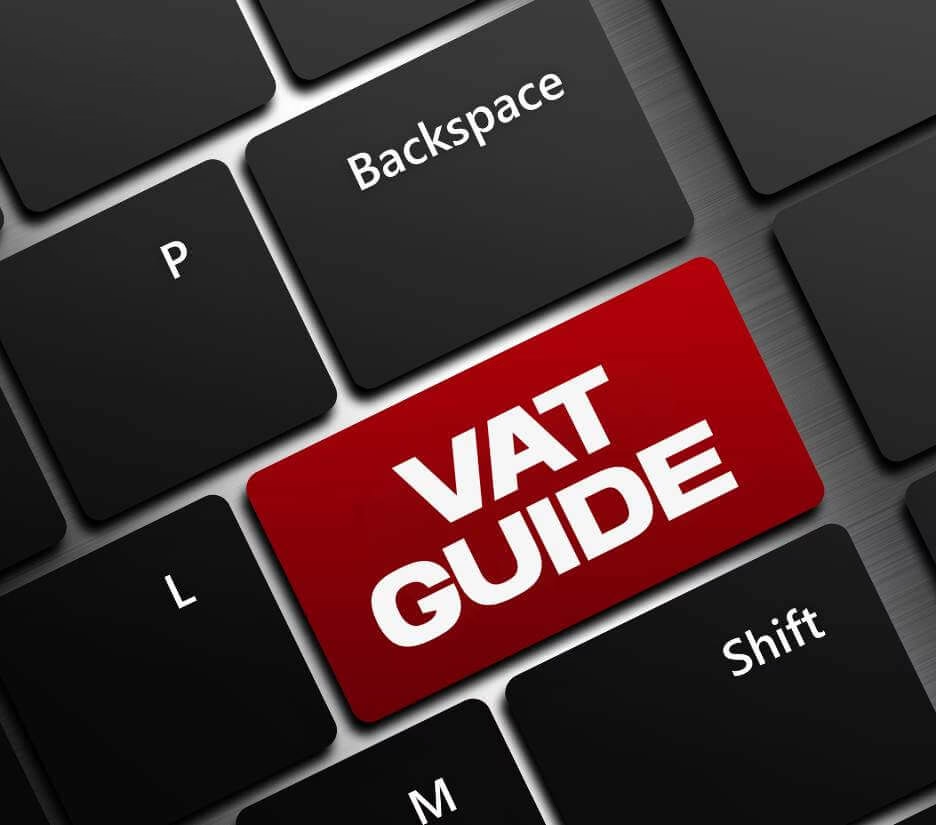UAE VAT Registration: 2025 Guide for Business Owners

In this article, you’ll learn exactly how VAT works in the UAE and its importance for start-ups and small business owners.
VAT Registration in the UAE
Starting a business in the UAE is exciting. You’ve got your trade license. You’ve landed your first clients. The dream is becoming real. But just as you settle in, a question pops up:
“Do I need to register for VAT?”
“Does VAT even apply to me if I’m not making much profit?”
“I’m in a free zone… am I automatically exempt?”
If you’ve asked yourself any of these questions, you’re not alone. These are some of the most common and costly misunderstandings new business owners face in the UAE.
Here’s the hard truth: getting VAT wrong can have serious consequences. You might think you’re safe because you’re not making big profits yet, or because your company is registered in a free zone. But that’s not how the system works. VAT is tied to revenue, not profit. And being in a free zone doesn’t always mean you’re exempt.
You might be interested in reading about:
- Difference between VAT and Corporate Tax
- Missed Your Corporate Tax Deadline? FTA Offers Penalty Waiver
- Are UAE Free Zone Companies Really Tax-Free? The Shocking Truth
What Is VAT and Why Should You Care?
If you’re new to running a business, taxes might feel like a distant problem. Right now, you’re focused on getting clients, closing deals, and building your brand. That’s where all your energy should be. But even at this early stage, there’s one tax you cannot afford to ignore Value Added Tax (VAT).
Introduced in the UAE in January 2018, VAT is a consumption tax applied to most goods and services. The standard VAT rate is 5%. That might sound low, but if you ignore it, the financial consequences can be significant.
Compliance and Penalties
Think of VAT as a tax that travels with every sale. Whenever you sell products or provide services, that 5% is part of the transaction. If you’re not registered for VAT when you should be, you risk falling out of compliance and facing penalties.
The worst part? VAT isn’t based on whether your business is profitable. It’s tied directly to revenue, the total amount of money your business brings in before expenses. Even if you’re not making a profit, the law requires you to register once your sales hit certain levels.
Common VAT Misconceptions
Let’s clear up some of the most common myths that confuse new business owners. Believing any of these can lead to costly mistakes.
Myth 1: “I’ll Worry About VAT After My First Year.”
This is one of the biggest misconceptions. VAT isn’t tied to how long you’ve been operating. It’s linked directly to your revenue thresholds.
If you hit the threshold in six months, you’re required to register. If you hit it in two months, you’re required to register. Waiting until the end of the year could result in heavy fines.
Myth 2: “I’m Not Profitable Yet, So VAT Doesn’t Apply to Me.”
This is completely false. VAT cares only about your sales numbers, not your profit margin. Even if you’re spending more than you’re earning, the law focuses solely on your revenue when determining if you need to register.
Myth 3: “I’m in a Free Zone, So I’m Exempt.”
While some designated free zones have specific VAT treatments, most free zone businesses are still subject to VAT rules. The assumption that being in a free zone automatically exempts you is incorrect and dangerous.
Myth 4: “International Clients Don’t Count Toward My VAT Threshold.”
Wrong again. Even if your clients are based outside the UAE, their payments still count toward your revenue threshold when calculating VAT obligations.
When Do You Have to Register for VAT?
A) Mandatory VAT Registration
If your taxable supplies and imports exceed AED 375,000 within any rolling 12-month period, you must register for VAT. This isn’t optional. Failing to do so can result in penalties starting at AED 10,000.
Example: An Online Marketing Agency Company
| Month | Revenue (AED) |
|---|---|
| Mar | 20,000 |
| Apr | 30,000 |
| May | 35,000 |
| Jun | 40,000 |
| Jul | 45,000 |
| Aug | 50,000 |
| Sep | 40,000 |
| Oct | 40,000 |
| Nov | 35,000 |
| Dec | 30,000 |
| Jan | 30,000 |
| Feb | 25,000 |
Total Revenue: AED 420,000
Outcome: VAT registration is mandatory. Delaying registration risks immediate penalties and backdated tax obligations.
B) Voluntary VAT Registration
If your taxable sales or expenses exceed AED 187,500, you’re eligible to register voluntarily.
Why would you choose this?
- You can reclaim VAT paid on business expenses.
- You prepare your business for future growth.
- You enhance your professional reputation.
Example: A Freelance Designer
| Month | Revenue (AED) |
|---|---|
| Mar | 10,000 |
| Apr | 15,000 |
| May | 20,000 |
| Jun | 18,000 |
| Jul | 20,000 |
| Aug | 22,000 |
| Sep | 20,000 |
| Oct | 18,000 |
| Nov | 18,000 |
| Dec | 20,000 |
| Jan | 20,000 |
| Feb | 19,000 |
Total Revenue: AED 220,000
Outcome: This business can register voluntarily and start reclaiming VAT on business tools, software, and office supplies.
C) Below Registration Thresholds
If your business earns below AED 187,500, you are not required or allowed to register for VAT. However, keep tracking your revenue. Growth often happens faster than expected.
| Month | Revenue (AED) |
|---|---|
| Mar | 8,000 |
| Apr | 10,000 |
| May | 12,000 |
| Jun | 10,000 |
| Jul | 12,000 |
| Aug | 13,000 |
| Sep | 11,000 |
| Oct | 14,000 |
| Nov | 15,000 |
| Dec | 15,000 |
| Jan | 15,000 |
| Feb | 15,000 |
Total Revenue: AED 160,000
Outcome: No VAT registration is needed right now. But the business should keep tracking monthly revenue in case it grows in the future.
What is a Rolling 12-Month Period?
One of the most misunderstood aspects of VAT registration is the rolling 12-month period. Many business owners mistakenly think that VAT calculations follow the calendar year or the financial year. They don’t.
Instead, the FTA requires you to assess your revenue continuously. Each month, you must look back at the previous 12 months to check if you’ve crossed the registration threshold.
For example:
- In April 2025, review your total revenue from May 2024 to April 2025.
- In May 2025, check from June 2024 to May 2025.
This rolling system ensures that businesses can’t avoid VAT registration by timing their earnings. One big invoice from 11 months ago still counts toward your threshold today.
Failing to calculate using this method is a common mistake. It leads to missed registration deadlines and costly penalties.
What Happens If You Miss Mandatory Registration?
If you fail to register for VAT when required, the penalties are steep and unavoidable.
Here’s what happens:
- AED 10,000 fine for late registration.
- You must pay VAT on all taxable sales from the date you were supposed to register, even if you didn’t charge clients VAT.
- You may receive additional fines for failing to submit VAT returns on time.
- You’ll likely need to issue backdated VAT invoices to clients, which can damage business relationships.
Many business owners assume they can fix these problems quietly later. But the FTA audits businesses regularly. Once you’re on their radar, every delayed registration and late return comes with a price tag.
How to Stay Compliant from Day One
The best way to avoid penalties and unnecessary stress is to stay organized and informed from the start.
Follow these simple steps:
- Track Your Revenue Monthly: Make it a habit to check your rolling 12-month revenue at the end of every month.
- Hire a Professional Accountant: A tax expert understands the regulations and will ensure you’re compliant. Let our team handle your accounting, ensuring you remain compliant and keep your business focused on growth.
- Use Accounting Software: Modern software helps you monitor revenue, calculate taxes, and generate reports easily.
- Stay Informed: Regulations can change. Follow updates from the Federal Tax Authority (FTA) to stay ahead.
By building these habits early, you’ll avoid surprises and keep your business focused on growth.
Should You Register for VAT Even If You Don’t Have To?
Voluntary registration isn’t just about reclaiming VAT on purchases. It’s also about future-proofing your business.
Why Consider Early Registration?
- You can recover VAT on office space, technology, marketing tools, and other startup costs.
- Your business appears more professional and established to larger clients.
- You avoid last-minute panic when your revenue unexpectedly crosses the mandatory threshold.
- You build better financial habits early by managing VAT properly from the start.
If your business is on a growth path, voluntary registration is often the smarter choice.
The Impact of Ignoring VAT
Failing to register for VAT on time can seriously affect your business’s cash flow and profitability.
Here’s how the costs can add up:
- Missed Registration Fine: AED 10,000
- Backdated VAT Payments on Past Revenue: AED 20,000 or more
- Additional Fines for Late VAT Returns: AED 5,000 per instance
Total Financial Impact: AED 35,000 or more
This doesn’t include the indirect costs of strained client relationships, time spent fixing errors, and the emotional stress of dealing with legal issues.
It’s far easier and more affordable to handle VAT correctly from the start. With EZONE, you get expert guidance on VAT registration, compliance, and filing, ensuring your business avoids costly penalties and stays ahead of regulatory changes.
Conclusion
VAT compliance isn’t optional. But it doesn’t have to be complicated or overwhelming either. With the right approach, you can handle VAT smoothly, avoid penalties, and keep your business focused on growth.
If you’re still unsure about your VAT obligations, don’t wait for the FTA to contact you. Take proactive steps now.
Book a free VAT assessment with our team today. We’ll help you review your revenue, calculate your thresholds, and make sure your business stays compliant without the fear of unexpected fines.
Stay ahead of VAT. Stay ahead in business.
EZONE specialize in creating content that highlights business setup and consultancy services. We provide expert insights on company formation, licensing, and the latest industry developments. Through this blog, we aim to equip entrepreneurs and businesses with the knowledge they need to navigate opportunities and challenges in today's market.



